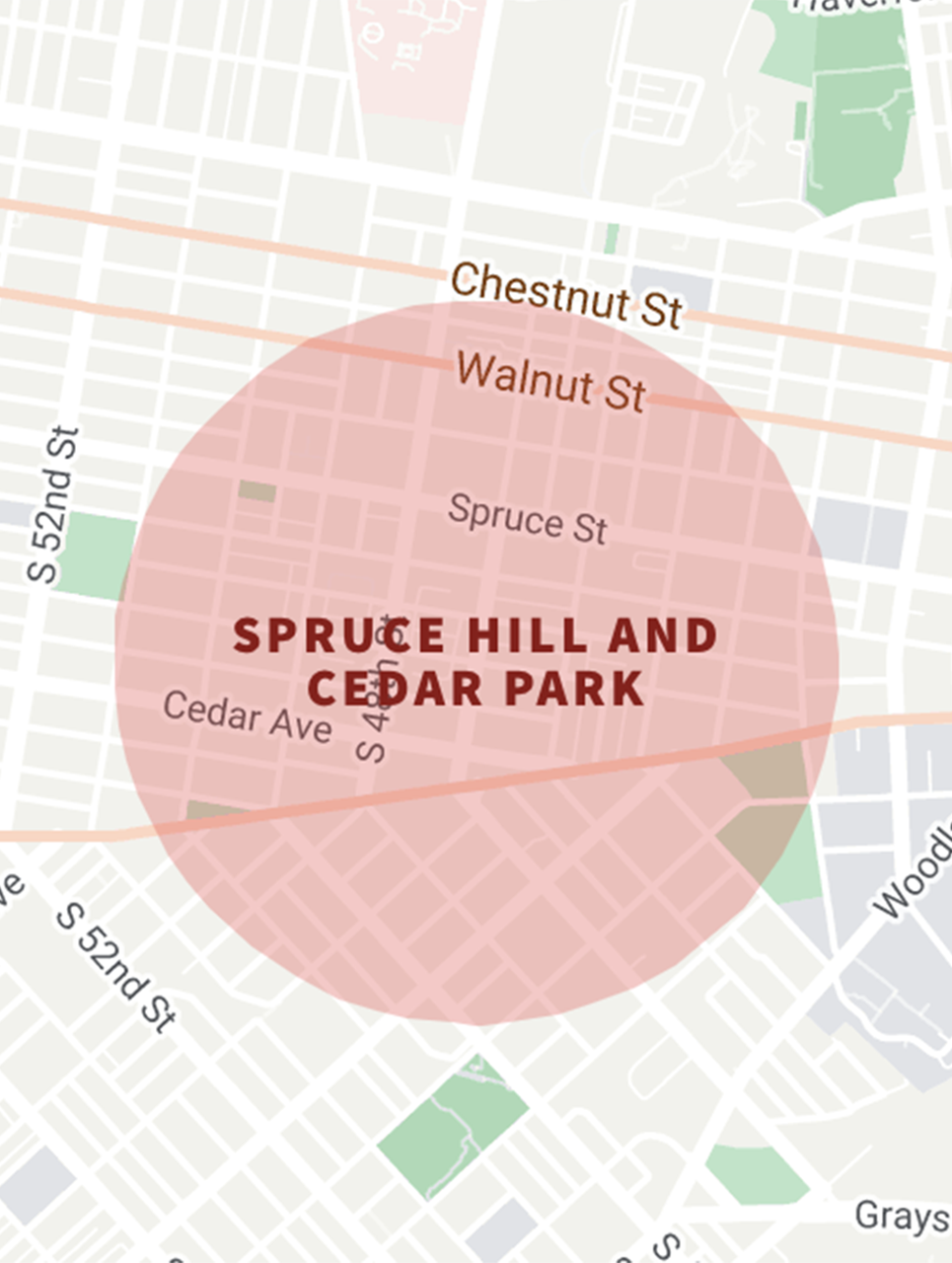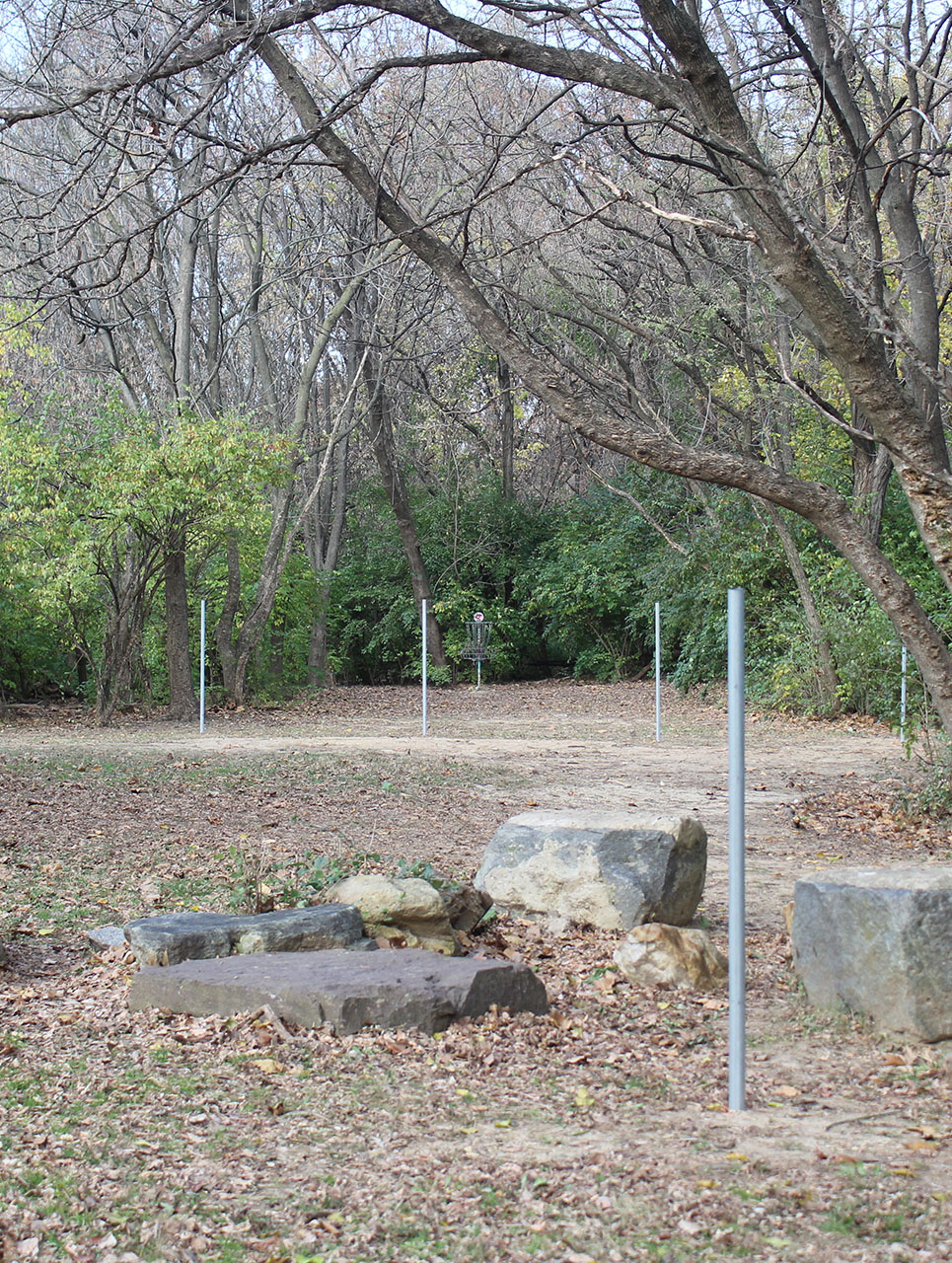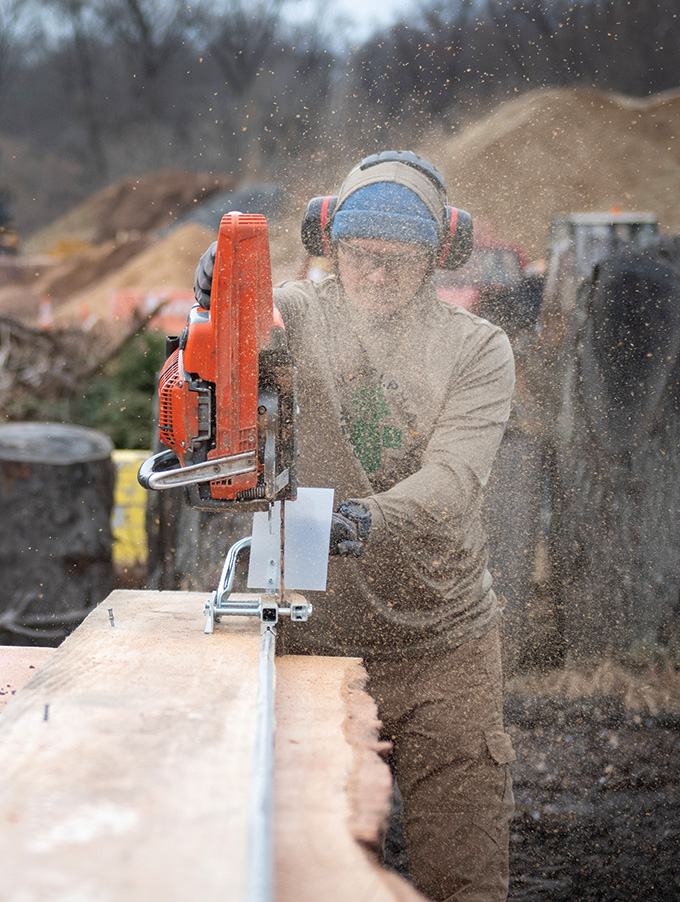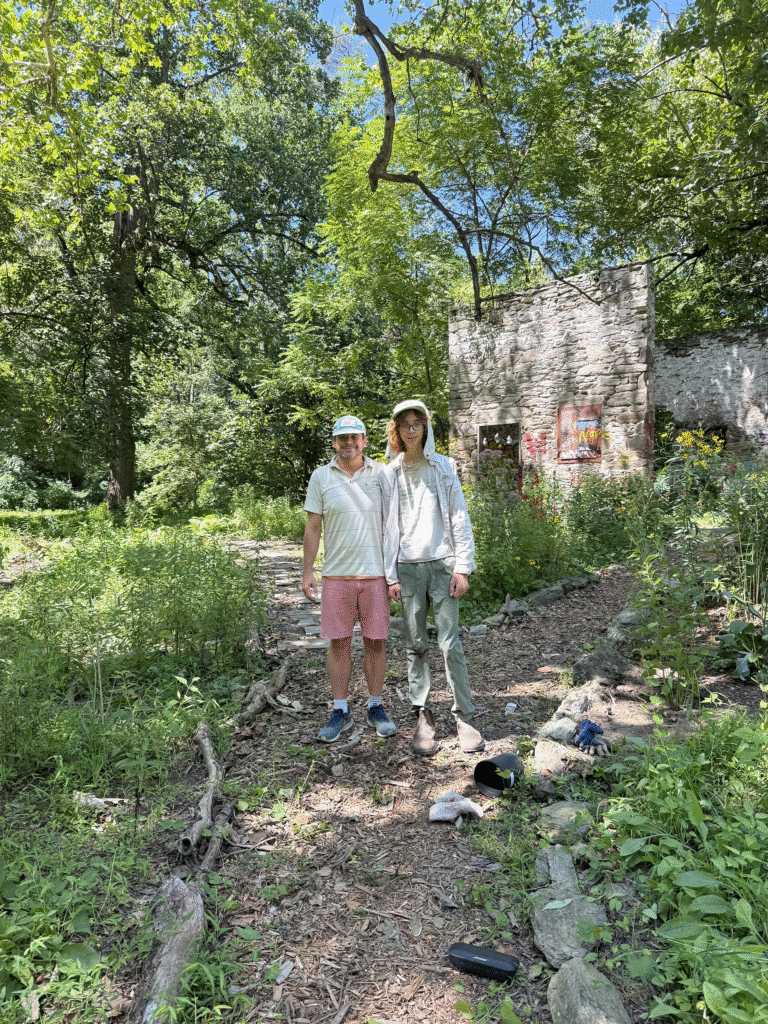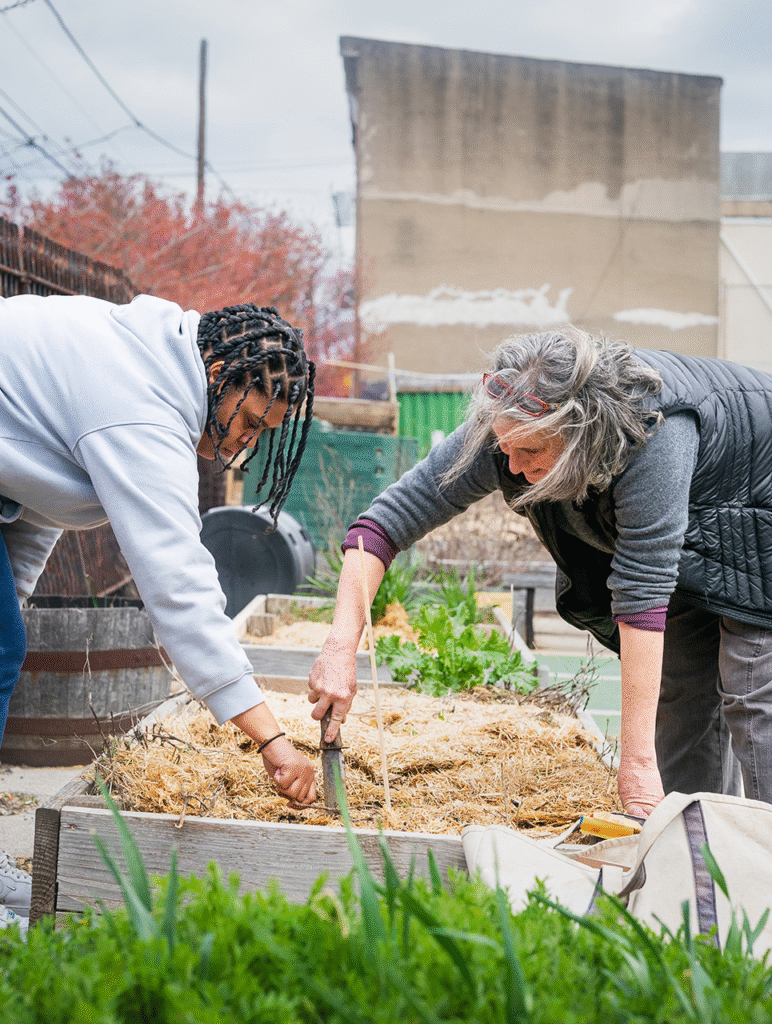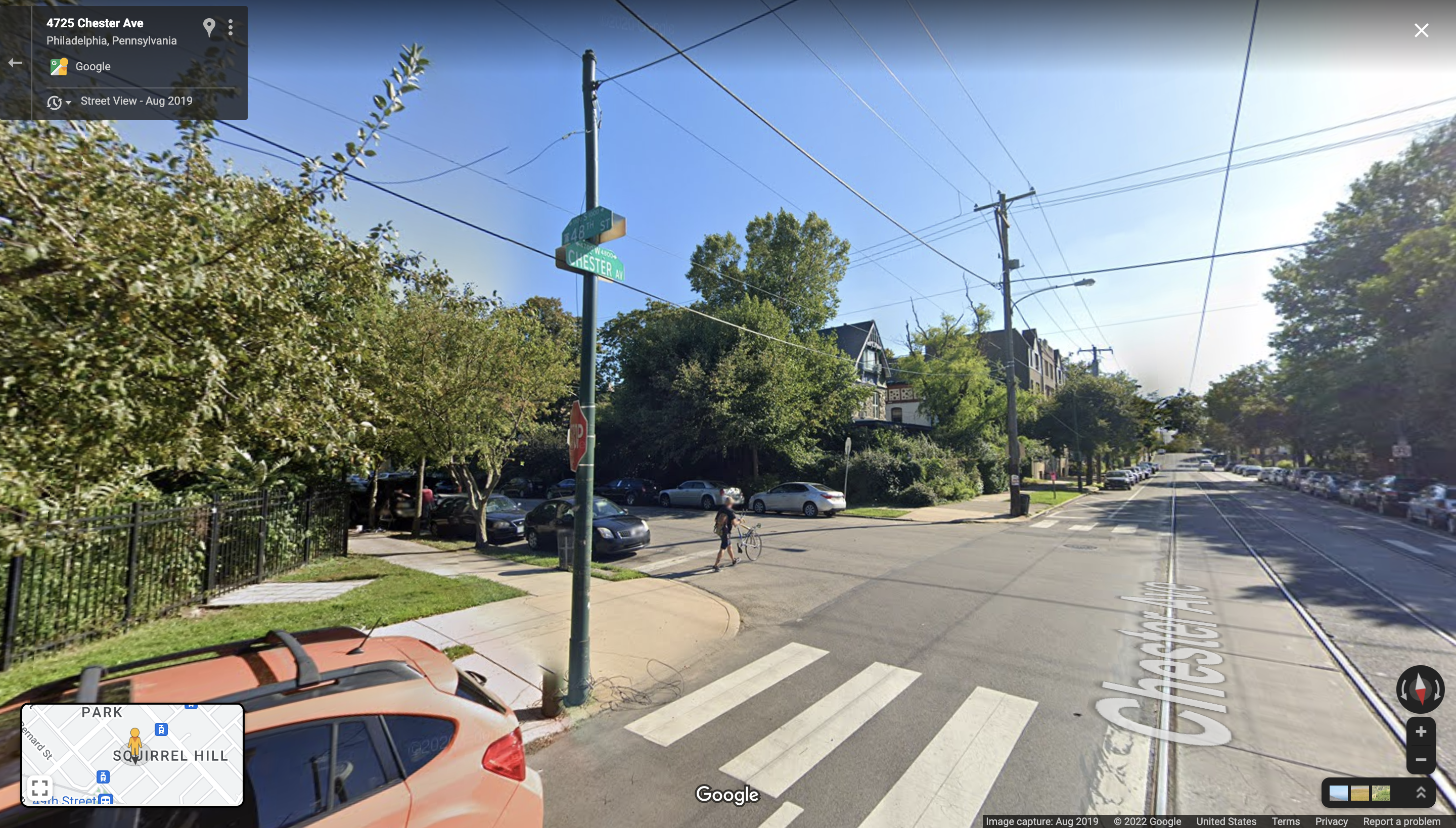
Anti-gentrification activists including Protect Squirrel Hill and West Philly United Neighbors are celebrating a victory in the zoning process for a proposed 76-unit apartment building at 48th and Chester, in the Cedar Park neighborhood.
The land is currently zoned for duplexes, so the apartment building requires special approval by the City’s Zoning Board of Adjustment (ZBA). A judge for the Philadelphia Court of Common Pleas ordered the ZBA to revisit its variance approvals for the building, meaning that there will be another hearing and vote.
The proposed apartment building has divided the community, with groups opposing the development at odds with the Cedar Park Neighbors registered community organization, which voted in favor of the zoning variances in exchange for promises from the developer to include 15 affordable units — available to renters making less than 40% of median area income — for $725 to $870 per month.
Philadelphia City Councilmember Jamie Gauthier, who represents the neighborhood, initially supported the project but later came out against the zoning variance. “The volume of calls and letters that my office has fielded regarding the zoning variance request at the corner of 48th Street and Chester Avenue dwarfs all other zoning-related matters we’ve encountered since entering office last year,” she said in a statement on her position shift.
Much of the controversy deals with the definition of “affordable.” Because affordability standards are based on incomes in the suburbs as well as the city of Philadelphia, rents that are technically affordable are often out of reach for low-income Philadelphians.
Opponents of the project also expressed fears that the building’s higher rents would lead to rent increases in surrounding apartment buildings, though recent research into housing markets indicates that new developments might actually tend to keep rental prices lower in nearby buildings.
“Our goals center on fighting gentrification and we know that the proposed apartment building with rents two to three times what people currently pay in the area will accelerate gentrification,” says Robin Markle with Protect Squirrel Hill.
More broadly, the activists have argued that private developers, who first and foremost build market-rate units, are unable to provide truly affordable housing, and that the housing crisis requires more action from the public sector.


